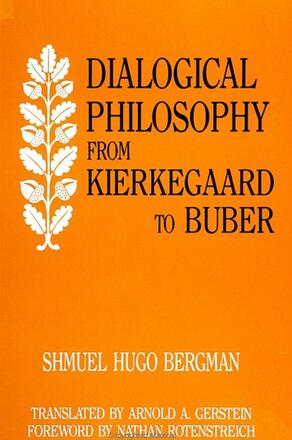Foreword
Preface
Part One. Soren Kierkegaard
1. The Development of Philosophy
Descartes, Liebnitz, Kant
Fichte and Hegel
Kierkegaard and Hegel
Romanticism and the Cult of Genius
Kierkegaard's Life
2. The Concept of Irony in Kierkegaard's Thought
The Trial of Socrates
The Ironist and the Prophet
Socrates According to Aristophanes
The Character of the Ironist
Irony and Romanticism
The Religious Stage
Ironist as Teacher
Objective vs. Existential Truth
3. Kierkegaard's Pseudonymous Writings
Either/or
A Christian in an Aesthetic Age
Boredom
Three Representatives of the Aesthetic Life
The Eternal and Temporal Man
In Praise of Marriage
Marriage--The Transition from Aesthetics to Ethics
The Choice of Despair
Man's Duty to Be Himself
The Relation between the Moral and the Religious
The Rejection of Mysticism
Euphoric Non-Vindication
Fear and Trembling
The Sacrifice of Isaac
Resignation and Repetition
Morality and the Sacrifice of Isaac
The Absolute Duty to God
Incidents of Moral Suspension in the Bible
Repetition
The Book of Job--the True Book of Repetition
The 'Individual' in Hegel and Kierkegaard
The Individual as a Religious Category
Philosophy and Faith
The Intrusion of Eternity into Time
Learning is Remembering
Learning and Revelation
Revelation and Love
Paradox and Faith
The Risk of Faith
Postscript
Objective Christianity as Idolatry
The Invisible Church
The 'Leap' to Faith
The Difficulty of Subjectivity
Existential Tension
Existential Pathos and Suffering
Suffering and Humor
Suffering and the Consciousness of Guilt
Part Two. Transition
4. Transitional Thinkers from Feuerbach to Rosenstock
Feuerbach and Stirner
First Principle in the System of Hermann Cohen
From Idealism to Dialogue
Ferdinand Ebner: Reciprocity and Spirituality
Self-Isolation--A Betrayal of God
Eugen Rosenstock
Thought and Speech
Three Levels of Language
The Error of Psychology
Part Three. Franz Rosenzweig
5. Franz Rosenzweig: An Overview
Metaethics, Metalogic, and Metaphysics
Unity and Triad: A Starting Point
Sick and Healthy Reason
Three Stages in the Cure of 'Paralysis'
God and His Name
Critical Remarks
6. The Star of Redemption
Being and Fortitude in God
Law and Particularity in the World
Character and Will in Man
The Protocosmos and the Revealed World
Philosophy and Theology
Revelation or the World in Time
Love of God and Love of Neighbor
The Law of the Reversibility of Arch-Words
The Evolution of Redemption
Judaism and Christianity
Part Four. The Dialogical Philosophy of Martin Buber
7. The Origin of I-Thou: The Mystical Period
The Imbalance of Realization and Orientation
Polarity and Unity
I and Thou
The World of I and the World of It
Life with Nature
Life with Man
Life with the Spiritual
Man's World
Man and God--The Eternal Thou
Notes
Index
